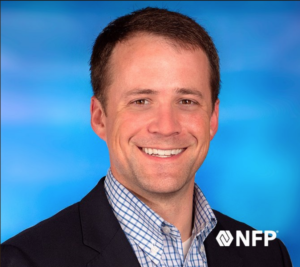by [email protected] | Feb 26, 2020 | Prescriptions for your Practice
Podcast: Play in new window | Download
 We often complete trainings on and talk about things we only use and do on occasion, but we tend to put important things that we use all the time—like communication—on the back burner. In this episode, Dr. Chris Bowman joins me to break down the importance of communicating more effectively. We discuss the obligation we have to our patients and how communication will help us fulfill what is ethical and incredibly beneficial to them and our practices.
We often complete trainings on and talk about things we only use and do on occasion, but we tend to put important things that we use all the time—like communication—on the back burner. In this episode, Dr. Chris Bowman joins me to break down the importance of communicating more effectively. We discuss the obligation we have to our patients and how communication will help us fulfill what is ethical and incredibly beneficial to them and our practices.
Listen in as Chris shares where most dentists miss out on having maximum satisfaction from their practice, as well as how to make better decisions and present options to patients in a consistent and practical manner. You’ll learn the issues with confidence that affect our ability to do these things, how we tend to make judgments that are off, and what makes patients more likely to follow our advice.
Be inspired and view more insights on Prescriptions for Your Practice Podcast Episodes
Key Quotes:
- “The biggest difference between the dentists who do well and the dentists who don’t is those who just get into it and do it.”
- “Telling someone something they don’t want to hear takes courage.”
- “There are certain skills that will get replaced by machines, but things like communication and connection—that human need will never be replaced.”
- “We have an obligation to let patients know what we can do for them, as well as the things that are or are not moving in the direction they want it to go.”
- “Patients are more likely to follow our advice when they know we ethically have their back.”
- “Everyone wants the problems that they know they have to go away. So if we get really good at explaining the problems and conditions and how those things are not going the way that they want, then we can get really effective at gaining acceptance for our treatment recommendations.”
- “It becomes more about presenting and selling a problem rather than presenting and selling a solution.”
Featured on the Show:


by [email protected] | Jan 29, 2020 | Prescriptions for your Practice
Podcast: Play in new window | Download
 Comparison and unrealistic expectations are often not talked about, but both happen frequently in dentistry. Today Tiger Safarov, founder of dental inventory management software ZenSupplies, joins the show to discuss the worrying topic of depression in dentistry and how to handle the stress of debt after schooling.
Comparison and unrealistic expectations are often not talked about, but both happen frequently in dentistry. Today Tiger Safarov, founder of dental inventory management software ZenSupplies, joins the show to discuss the worrying topic of depression in dentistry and how to handle the stress of debt after schooling.
Listen in as Tiger shares what he thinks you should delegate to your assistant so you don’t feel overwhelmed, as well as why you should value your dental assistant. You’ll learn the importance of allowing yourself to make mistakes, how to connect with your team, and more.
Be inspired and find more insights from Prescriptions for Your Practice Podcast Episodes
Key Quotes:
- “Just do the right thing. Keep moving and keep building.”
- “There is a huge disconnect of your expectations and what happens when you finish dental school.”
- “We take this identity of expert and we put it in all these places where we have no expertise … That’s where dentists end up in this place of burnout.”
- “My biggest concern is that there are too many people suffering in silence.”
- “The longer you’re sidetracked, the harder it is to course-correct.”
- “Permission to make mistakes is so important.”
Featured on the Show:


by [email protected] | Apr 24, 2019 | Prescriptions for your Practice
Podcast: Play in new window | Download
 Ritualization habituation—what is it exactly? And what does it have to do with growth and having your best year every year? In this episode, I’ll answer these questions and explain why it’s so important to be strategic about thoughts, patterns, and behavior.
Ritualization habituation—what is it exactly? And what does it have to do with growth and having your best year every year? In this episode, I’ll answer these questions and explain why it’s so important to be strategic about thoughts, patterns, and behavior.
Many people fail to leverage their full capabilities and drain themselves by giving more than they have. Listen in to learn how to avoid this common pitfall, how to create and nurture the habits that are so important to your success, and how personal development naturally leads to business development.
Be inspired and find more Prescriptions for Your Practice Episodes
Key Quotes:
- “We are essentially our habits—our patterns of thought and our patterns of behavior.”
- “Very strategically start instilling powerful habits and removing limiting beliefs to start having your best year every year.”
- “Get at the root of empowering behaviors so you don’t have to think about them—they’re just part of your day-to-day.”
- “The morning routine starts the night before.”
- “You’re doing what you said you would do. That helps your confidence. That helps your self-image. That helps your capacity to grow your business.”
- “When you go to the office, if your energy is not on, it will affect your ability to lead. It’ll affect your good will. It will affect your case acceptance.”
- “Once you change who you are, then everything changes.”
- “As you expand, so does your business.”
Featured on the Show:


by Karah Karah | Oct 31, 2018 | Prescriptions for your Practice
Podcast: Play in new window | Download

The road to creating the long-awaited Titans of Dentistry book has been difficult and fulfilling. In this episode, Dr. Justin Short and I will discuss the journey and the process of creating this exciting project. We talk about how the book is laid out, the importance of embracing difficult processes and challenges and much more.
We discuss the challenges we faced while putting together this book and why we found it all rewarding and pushed through the difficulty. You’ll get a glimpse of some of the people we profile in the book and why they are so influential and inspiring. You’ll also get a taste of what the book holds – from the career-changing moves to how the titans got through the most difficult times. It’s an important book that can play a big part in shaping your career so grab your highlighter and get ready to dig into and implement the wisdom of the Titans of Dentistry.
Key Quotes:
- “You’re not gonna get an extraordinary life, an extraordinary practice doing the same things that everyone else does.” – Dr. Justin
- “We think that a better crown margin is going to skyrocket our practice and our life, and not that that’s unimportant, but there are many more things at play here.” – Dr. Dave
- “The success is defined by the individual.” – Dr. Dave
- “It’s not always about doing more.” – Dr. Justin
- “Many of those setbacks would have brought a person to their knees but a lot of the titans used that as fuel to get to the next level.” – Dr. Dave
- “We all have those days, we all have setbacks. It’s not the absence of those that separate the boys from the men or the girls from the women, so to speak, it’s how you act in the midst of those that create a separation.” – Dr. Justin
- “All these people have some kind of greatness of achievement and they all came about it different ways.” – Dr. Justin
- “At the end of the day, there is nothing magical about them that I don’t have.” – Dr. Justin
- “Our goal isn’t to find the top 30 dentists, our goal was to find a variety of paths.” – Dr. Dave
- “These people are willing to do whatever it takes whenever it takes.” – Dr. Dave
Featured on the Show:


by Karah Karah | Oct 17, 2018 | Prescriptions for your Practice
Podcast: Play in new window | Download

This episode is all about understanding your fears and finding effective ways to lead and grow your practice. The pain of fear can be so crippling but it doesn’t have to hold you back if you don’t let it. We’ll go over the common fears people have when it comes to their practice and challenge you to not let that fear get in your way by choosing courage over comfort.
First you’ll learn about the different hats that dentists, especially leaders, should be wearing and how to develop your leadership skills to bring out the best in your team. The next step is finding where fear is holding you back so you’ll learn about some common ways that fear keeps you from growing and how to push past those issues.
Key Quotes:
- “There are several hats that dentists have to wear and I think the leader themselves should wear a few different hats.”
- “The common theme I see in the purpose of all people is that they should be growing and expanding and they should be serving.”
- “The way that we’re going to grow now is to grow the people. Grow their confidence and grow their capabilities.”
- “If you’re not intentional about growth, increasing the skillsets of people that are there and increasing your own skillsets, it’s an easy way to have your practice inadvertently plateau.”
- “In a practice you actually have to encourage people to make mistakes.”
- “Capability comes after courage. After some reps you’re developing some confidence.”
- “You can’t be the leader who criticizes them for making mistakes because they will stop making the effort.”
- “Courage isn’t the absence of fear, it’s doing something that you fear. The fears never really go away.”
Featured on the Show:


by Karah Karah | Jul 25, 2018 | Prescriptions for your Practice
Podcast: Play in new window | Download

There is an ever-growing threat to cybersecurity as our technology and data become more connected and advanced. In this episode, Evan Taylor steps in to educate us on how to protect our practices from the various security breaches. He discusses the different types of breaches that tend to happen and how to set up processes and protection that will keep your customers and practice safely.
Evan comes to us from an FBI background and shares how and why he made the shift into working with cybersecurity threats to businesses. He talks about how health care providers are possibly more at risk of security breaches and why it’s so important to invest in proper protection and education regarding cybersecurity risks. Evan also discusses the difference between risk mitigation and risk transfer as well as giving some tips on three main areas where you can start tightening your security now.
Key Quotes:
- “If you think about the mob in the early 1900s in America, this is how they operate overseas.”
- “They can make hundreds of thousands of dollars in a matter of minutes.”
- “It makes it very difficult to attribute who is conducting a breach and for what intent.”
- “They either want to monetize simply having access to a company network or they want to monetize the data that they can steal off of that network.”
- “The typical ransomware payments are around $30,000.”
- “Healthcare data is the most lucrative, the most profitable data for attackers.”
- “In a matter of hours, you could have 7, 8, 9 hundred thousand dollars liquidated from an account.”
- “They need to be educated on what to click on and what not to click on.”
- “Make sure the technology you have is up to date and that you have somebody closely watching the practice from an IT sense.”
Featured on the Show:


 We often complete trainings on and talk about things we only use and do on occasion, but we tend to put important things that we use all the time—like communication—on the back burner. In this episode, Dr. Chris Bowman joins me to break down the importance of communicating more effectively. We discuss the obligation we have to our patients and how communication will help us fulfill what is ethical and incredibly beneficial to them and our practices.
We often complete trainings on and talk about things we only use and do on occasion, but we tend to put important things that we use all the time—like communication—on the back burner. In this episode, Dr. Chris Bowman joins me to break down the importance of communicating more effectively. We discuss the obligation we have to our patients and how communication will help us fulfill what is ethical and incredibly beneficial to them and our practices.


 Comparison and unrealistic expectations are often not talked about, but both happen frequently in dentistry. Today Tiger Safarov, founder of dental inventory management software
Comparison and unrealistic expectations are often not talked about, but both happen frequently in dentistry. Today Tiger Safarov, founder of dental inventory management software  Ritualization habituation—what is it exactly? And what does it have to do with growth and having your best year every year? In this episode, I’ll answer these questions and explain why it’s so important to be strategic about thoughts, patterns, and behavior.
Ritualization habituation—what is it exactly? And what does it have to do with growth and having your best year every year? In this episode, I’ll answer these questions and explain why it’s so important to be strategic about thoughts, patterns, and behavior.

